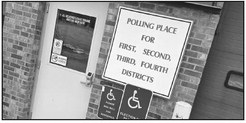Business ID theft is real – are you protecting your company?
Running a business has so many moving components; it can be hard to keep track of everything. That is especially true in light of all that small businesses are having to do to stay afloat during the COVID-19 pandemic. Although it may not be top of mind, you want to be sure you are doing all you can to protect your business’s reputation and take steps to prevent business identity theft. Better Business Bureau (BBB) has tips to help your business.
We often think of identity theft as a serious problem that affects individuals, but businesses are also at risk, and not just big name businesses. Criminals can steal a business’s identity by gaining access to financial or other sensitive information. They also have a variety of ways in, including hacking, malware, phishing emails, swiping credit card info or even as far as finding old sensitive documents that have been improperly thrown out. BBB hosts Secure Your ID day and community shredding events to remind the public that identity theft is easily preventable; however, businesses should be vigilant about this issue and constantly ensuring they are doing all they can to protect their own and their customers’ sensitive information.
Businesses should be wary of these red flags of identity theft:
• You receive a request to verify orders you didn’t place.
• You receive phone calls from someone trying to verify an address for your business that is not associated with your company or that you cannot confirm.
• You receive invoices for storage, shipping or other services that you did not purchase
• You are a victim of a phishing attempt or a business email compromise (BEC) scam.
Consider these tips to help protect your business:
• Protect your business’s bank accounts. Review your commercial banking agreements to determine your protections and reporting requirements. Consider using a two-person authorization or other arrangements with your bank to protect against fraudulent wire transactions. Beware of phishing scams and monitor your bank account(s) frequently.
• Protect your business’s identifying information. Guard your Employer Identification Number (EIN) and Tax Identification Number (TIN) the way you would your own Social Security Number. Don’t give them out unless required, and shred old documents with business ID information in them. If your business or non-profit is required to give out your EIN, keep a close eye on your credit report.
• Protect and monitor your state business registration information. Regularly review your information filed with your state or province to make sure your information hasn’t been changed or updated without authorization.
• Protect and monitor your business’ credit card, supplier and trade accounts. Keep an inventory of accounts and key contact information. Review and reconcile account statements as soon as they are received, and immediately alert your credit card company if you find fraudulent activity.
• Protect and monitor your business’ credit file. At least once a year, review your business credit reports with Equifax, Experian and TransUnion. Keep personal and business finances separate and consider placing a credit security freeze on your personal credit file to make it harder for thieves to open new accounts under your business’s name. Experian: experian.com Transunion: transunion.com Equifax: equifax.com
• Protect your business’s computers and networks. Restrict use of your business computers to only business activities. Install anti-virus software and keep it updated regularly. Secure your company’s wireless network.




